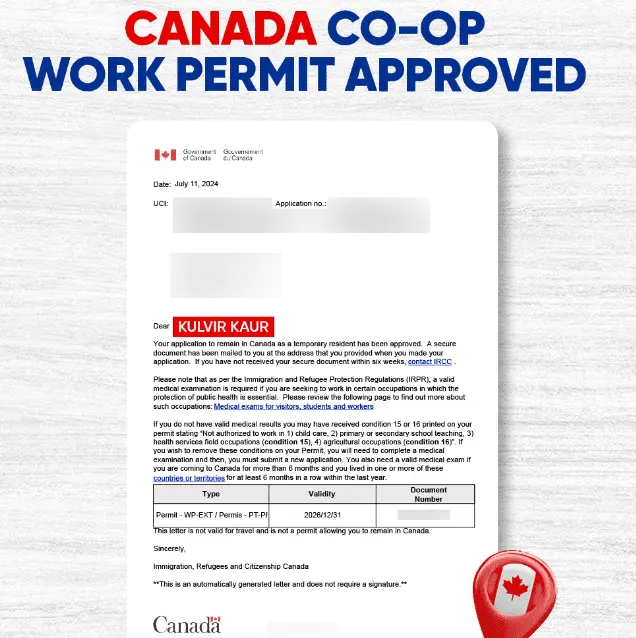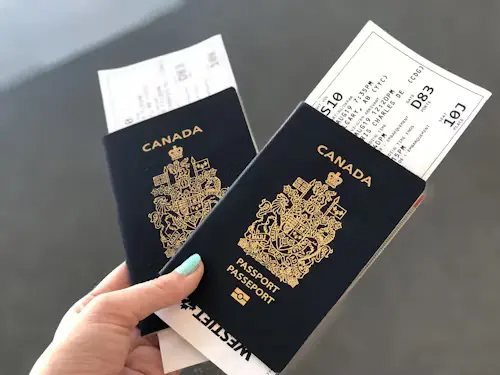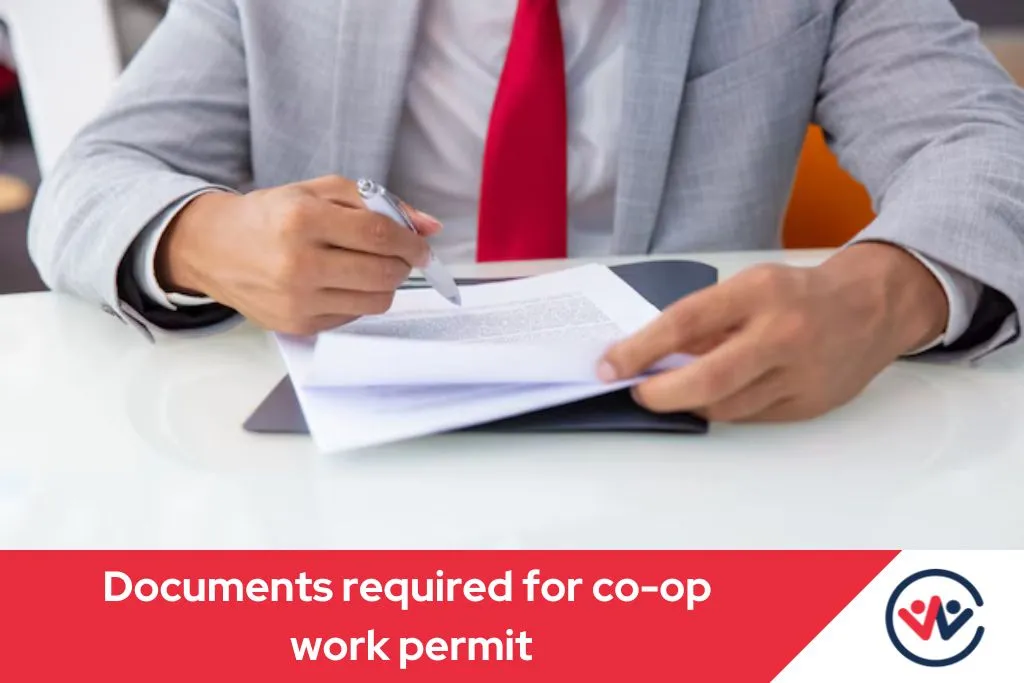If you plan to work in Canada as part of your studies or internship, securing a Co-op Work Permit is one of the essential steps in your journey. This permit allows international students to gain valuable work experience in their field of study.
However, before you can start your internship or co-op job, it’s crucial to know the documents required for co-op work permit to avoid delays in your application process.
In this blog, we’ll walk you through the necessary documents and steps involved in applying for a co-op work permit in Canada.
What is a Co-op Work Permit?

A Co-op Work Permit is a special type of work permit that allows international students enrolled in a recognized Canadian educational institution to work in Canada as part of their study program.
Co-op programs combine academic learning with practical work experience, which is why this permit is vital for students whose programs require work placement.
To be eligible for a co-op work permit, students must be enrolled in a program where work experience is a compulsory component, such as internships, field placements, or co-op programs.
Key Documents Required for Co-op Work Permit
When applying for a co-op work permit in Canada, you’ll need to provide several important documents. Below is a list of the most common documents that applicants are required to submit:
1. Valid Passport

Your passport is one of the most important documents for applying for a work permit. Ensure that your passport is valid for the entire duration of your intended stay in Canada.
2. Letter of Acceptance from Your Educational Institution
This letter should confirm that you are enrolled in a full-time academic program that requires work experience (such as a co-op or internship). It should also mention the duration of your program and the work component.
3. Proof of Enrollment in a Co-op Program
You’ll need to provide documentation that specifically indicates that your program includes a mandatory co-op or internship placement. This could be in the form of a course syllabus or a letter from your educational institution.
4. Co-op or Internship Offer Letter

This letter is provided by the employer offering the internship or co-op placement. It should include details like the job description, your role, the duration of your work placement, and the terms of employment.
5. Proof of Financial Support
To show that you can support yourself financially during your stay in Canada, you may be asked to provide proof of sufficient funds. This can include recent bank statements, scholarship offers, or financial guarantees from your home country or sponsor.
6. Valid Study Permit
You must have a valid study permit to apply for a co-op work permit. Your study permit should not expire during the period you intend to work in Canada, so be sure to renew it in time if needed.
7. Medical Exam (If Applicable)
Some applicants may be required to undergo a medical examination if their job involves working in certain industries (e.g., healthcare, agriculture). Your healthcare provider will guide you on the process if required.
8. Proof of Identity
Some applicants may need to provide additional identity documents, such as a birth certificate or national identity card, depending on their country of origin.
9. Police Clearance Certificate (In Certain Cases)
Although not always required, some applicants may need to submit a police clearance certificate to prove they have no criminal record.
This is more likely to be requested if you have lived in a country other than your home country for six months or more in the last ten years.
Important Tips to Keep in Mind
Duration of Work Permit: Your co-op work permit will be valid for the duration of your work placement or up to the expiration date of your study permit, whichever is earlier.
Check Eligibility: Ensure that you meet the eligibility criteria for a co-op work permit before applying. You need to be enrolled in a full-time program at a recognized institution in Canada, and the program should include a mandatory work component.
Work Restrictions: While the co-op work permit allows you to work full-time during your placement, remember that you can only work for the employer listed in your application.



Pingback: Difference Between Co-Op Work Permit and Open Work Permit